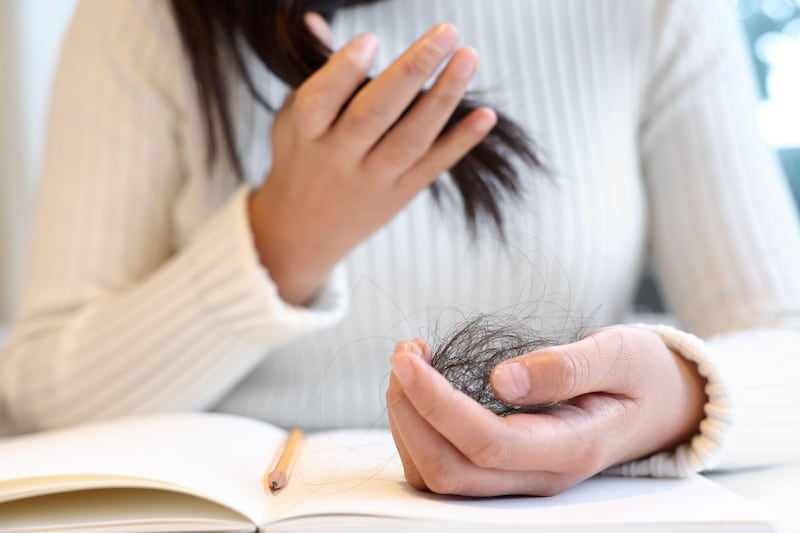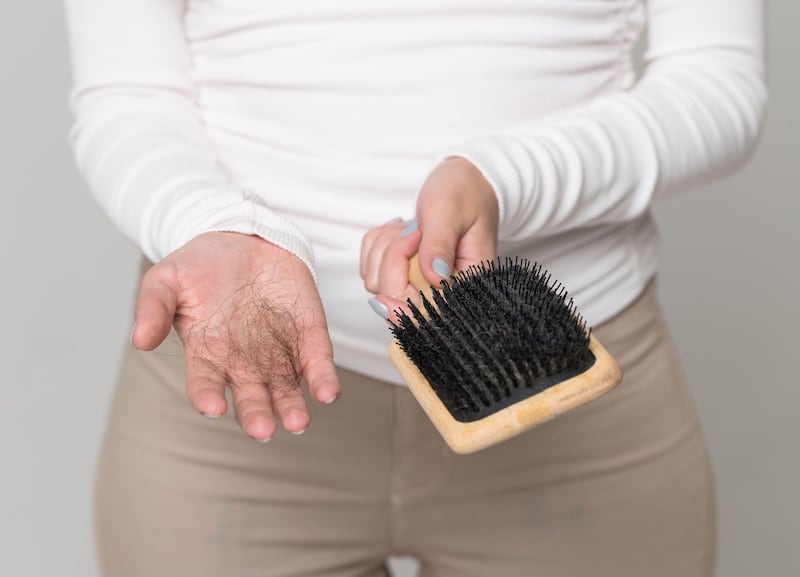Paloma Faith has revealed she suffers from a form of hair loss related to stress, and says her hair regularly falls out when she’s anxious.
The singer, 42, says her body starts ‘eating itself’ when she doesn’t address her feelings, and she sees a therapist regularly to manage her emotions.
“If I’m stressed at work, if it’s emotional, my hair starts falling out,” she told the Great Company with Jamie Laing podcast. “And it’s something to do with the body kind of starts eating itself, if you don’t release those feelings. So it’s really important that you do.”
But why does stress cause some people’s hair to fall out?
Amy Johnson, communications manager at Alopecia UK, has alopecia herself, and explains that the term ‘alopecia’ simply means hair loss. She points out: “It’s not clear what type of alopecia Paloma is experiencing – ‘stress-related alopecia’ isn’t a medical term we recognise.”
Dermatologist Dr Leila Asfour of the British Association of Dermatologists says the link between stress and alopecia hasn’t been proven, but there are some theories on how stress might contribute to hair loss based on animal studies.
“Stress hormones such as cortisol affect our bodies in lots of ways,” she says, explaining that stress affects the hair follicle’s stem cells in mice, which can then disrupt the hair cycle.
She says stress has been suggested as a possible trigger for two common types of hair loss called telogen effluvium and alopecia areata.

“We all shed hair every day,” she says, “but people with telogen effluvium shed more than usual. There are lots of triggers for this type of hair loss, one of which is stress. People often experience telogen effluvium after illness, severe trauma, or stressful life events.”
She says alopecia areata is another common cause of hair loss, which usually causes small patches of baldness but can affect the whole scalp and body. “While we know inflammation is behind the hair loss, we don’t know what causes the inflammation, and stress is often raised as a potential factor,” she says.
“It’s unclear how and if stress affects the hair follicle to trigger alopecia areata – there’s a lot we don’t know yet with regards to triggers for this condition. More research is needed before we can say that stress is a cause, let alone pinpoint how stress does this.”
Trichologist Neil Harvey, chairman of the Institute of Trichologists (treating diseases and disorders of the human hair and scalp) believes stress is definitely associated with alopecia.
“Generally, any major negative life event – loss of a loved one, divorce, moving house, illness – can cause a rise in the body’s cortisol levels, resulting in stress, which in turn can act as a trigger for hair loss,” he says.
Can alopecia linked to stress be treated?
Asfour says hair loss caused by telogen effluvium tends to self-resolve, and for some cases of mild alopecia areata there may be no need for treatment as the hair can sometimes grow on its own.
Some treatments can help encourage hair growth, such as corticosteroid creams or injections or tablets depending on the extent of hair loss, she says. There are also new therapies called JAK inhibitors, which help fight inflammation to improve hair growth, and two medications called ritlecitinib and baricitinib which have now been licensed specifically for the treatment of severe alopecia areata.

But Asfour stresses it’s important to speak to your doctor before taking any treatments.
“While these treatments can improve hair growth, they are not a cure for the condition,” she points out. “It’s important to remember that hair loss itself is also a source of stress for many people. Psychological support for people with hair loss can help manage this.”
And Johnson adds: “Experiencing hair loss can be very distressing and lead to feelings of anxiety and depression for some people. We recommend people visit their GP for advice and if they are unable to diagnose, ask for a referral to see a dermatologist to seek a firm diagnosis and discuss any possible treatment options.”
She says Alopecia UK’s website includes links to peer support, and adds: “Being in touch with others who have gone through the same can really help navigate what is, for many, a difficult journey.”








